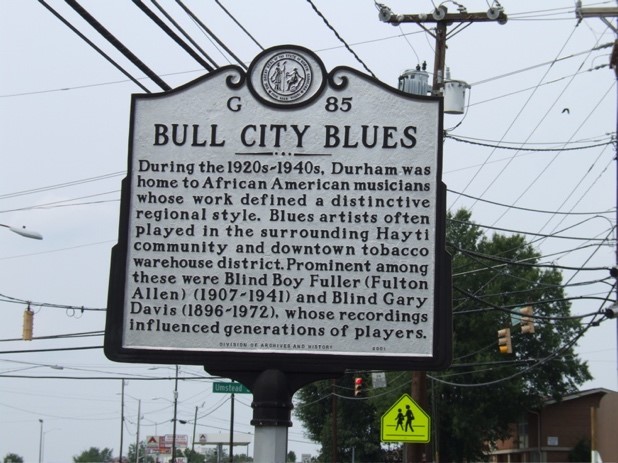
Overview
Be ready to:
- Describe the musical landscape in which blues-derived music developed.
- Describe various aspects of the Jim Crow laws and their impact on African American society.
- Describe the antecedent musical genres that impacted the development of the blues.
- Define the term blues.
- Explain why W.C. Handy is affectionately referred to as the "Father of the Blues."
- Illustrate the textual and musical form-three-line structure-of the blues.
- Name blues compositions/performers from the three broad stylistic categories-Country, Classic, and Urban blues-and their respective contributions.

Discover Music

Discover Video

Keywords

Listening Guides

References
Piedmont Blues
In the Piedmont region , which lies between the Atlantic Coastal Plain and the Appalachian Mountains from central Georgia to central Virginia, a distinct style of guitar playing comparable in sound to ragtime piano developed. This style is characterized by intricate fingerpicking in which the thumb alternates bass strings in a rhythmic pattern the treble strings. Two significant practitioners of this style of blues were Blind Boy Fuller (born Fulton Allen; c. 1904-1941) and Blind Willie McTell (born William Samuel McTier; 1898-1959). Other notable practitioners include Blind Blake (1896-1934), Josh White (1914-1969), and Buddy Moss (1914-1984).
Learn about other Piedmont Blues musicians here: List of Piedmont Blues Musicians. Selected musical examples of this tradition are listed below.
| Blues Musicians | Listening Examples of Piedmont Blues Tradition |
|---|---|
| Blind Boy Fuller | |
| Blind Willie McTell |
In his discussion of Alabama and Georgia, David Lee Joyner states that "Alabama had an active blues scene in the cities of Birmingham and Montgomery, as well as in rural areas, but was overlooked by recording expeditions from the North. Georgia fared much better in recording and popularizing of its blues" (Joyner 1993, 67-68). Musical practitioners of the style associated with Alabama are "Birmingham" George Conner (1934-2016), the blues singer Vera Hall (1902-1964), and Zebediah "Doc" Reed (1898-1979).
David Lee Joyner mentions that, due to its rapid growth and recording companies coming into town, Atlanta attracted many blues singers from all over the South. "Atlanta blues features a more delicate fingerpicking style on the guitar, as opposed to the more forceful rhythmic feel of Delta blues guitarists. Atlanta singers used more distinct pronunciation and lighter vocal tone quality" (Joyner 1993, 70).
Sidney Bechet
The blues like spirituals were prayers. One was praying to God; the other was praying to man.
Sterling Brown
You can't play the blues until you have paid your dues

